Thunder Road Automotive Study V:
1970 Plymouth Belvedere varieties
I've been trying to wrap my head around all these models and their associated front grilles and rear trim panels for a long time. Here I will present my findings which are just a brief review and comparison of the Plymouth "B Body" (mid-size) models so that it will all be clear in my mind once and for all. So this is really a thing I did for myself as much as something I made to share on Hive.
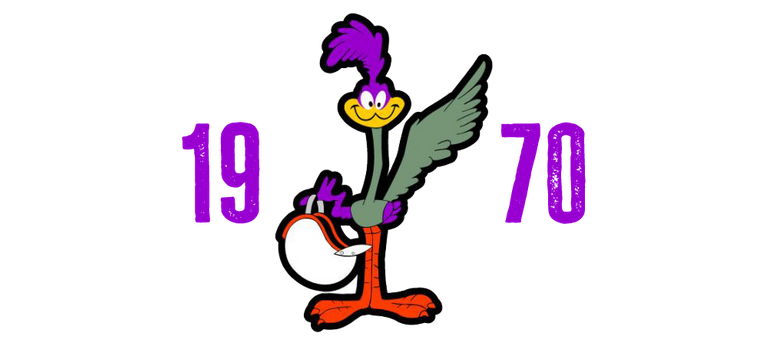
We all understand how the auto companies have always offered a stratified model and pricing structure with "Deluxe" and "Custom" being common identifiers generally accompanied by a script on the fenders or front/rear of the cars. "GT" or "500" are also among the most common. But during the later phase of the Golden Era of Chrysler's high-performance years 1968-1970 there were several very original designations that we shall review below focusing only on the 1970 Plymouth Belvedere model and it's 2-door varieties.
See my 1968 Plymouth Belvedere post here.
and my 1969 Plymouth Belvedere post here.

First is the base model Belvedere for 1970. The body is just slightly tweaked from '68-'69.. the upper side sheet metal crease was eliminated and the faux side air scoop was added. I'm just gonna present the grilles and tailights for consideration. Let's start with the back of the car cuz it's simpler to grasp the differences.
Below is an example of a base Belvedere.
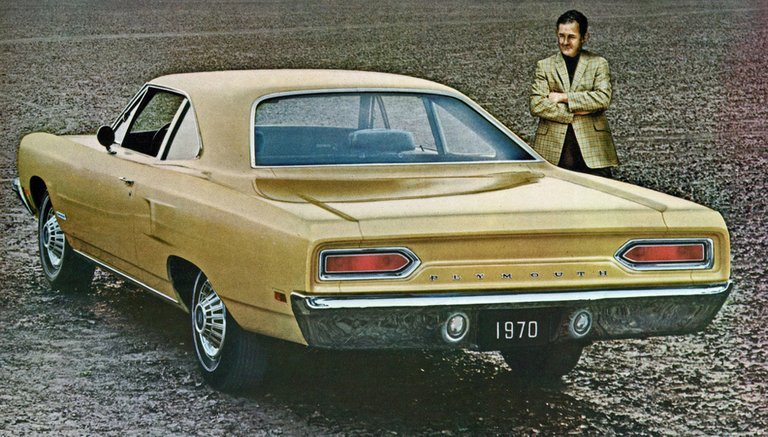
source
You can see that the rear panel area is recessed with an upwardly shifting lower horizontal crease. This is the same contour that you'll see in the new grille.. so it matches kinda nicely. Note the P L Y M O U T H lettering spaced evenly across the lower area just above the bumper and the single element symetrical tailights.
The Road Runner continued with simple Belvedere trim but with the addition of *dual stacked tailights. The chrome frame of the tailight is color-keyed to the body to give it a cool look.
The owner of this yellow Road Runner appears to have Belvedere tailights and the blacked-out panel of the GTX (but without the second chrome trim surround).
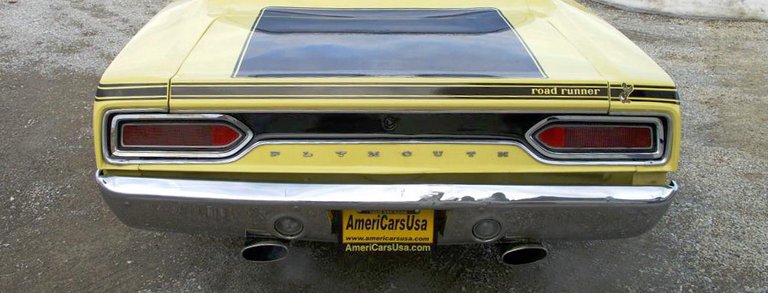
source
Below again we see Belvedere tailights with the Satellite chrome trim of a deleted rear panel (thus the body color showing through).
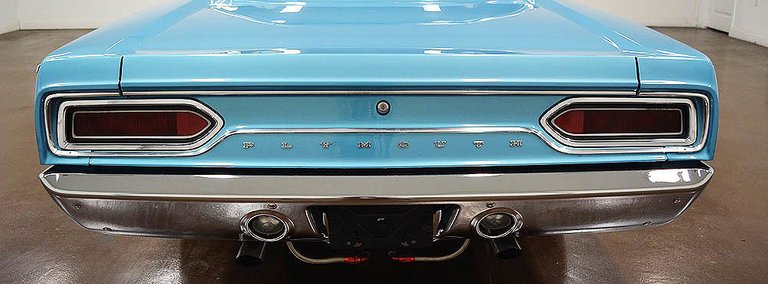
source
Below is a correct Satellite rear (in this case a Sport Satellite).
Dual stacked tailights that are chromed-trimmed.. with gray aluminum rear panel and it's chrome surround.
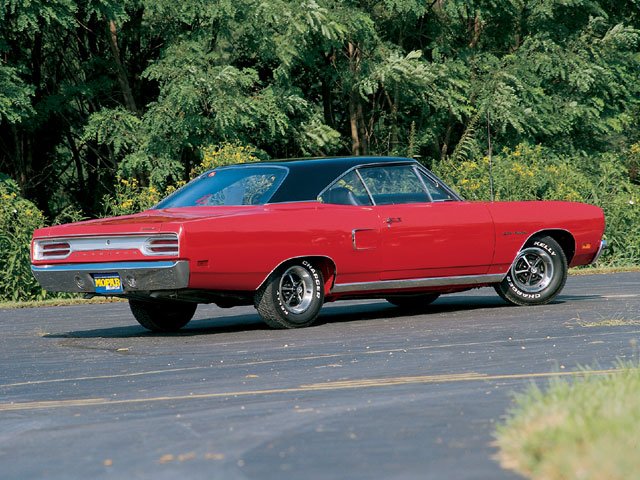
This one is similar to the above example but with the aluminum panel deleted (and body color showing).
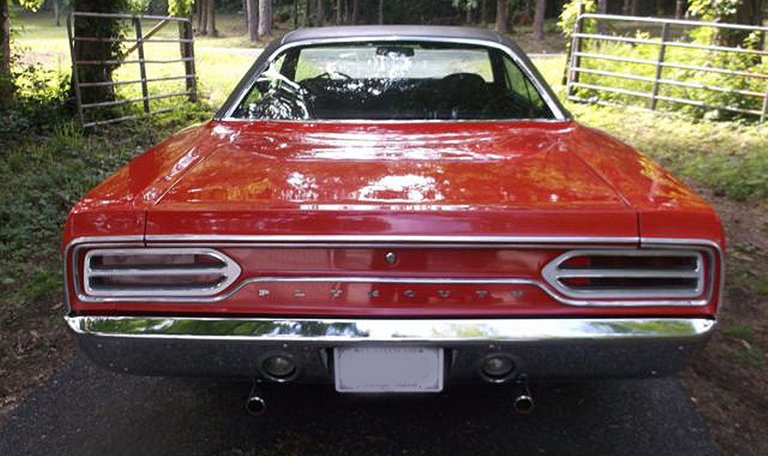
source
Here's one with the gray aluminum panel but with color-keyed tailight trim:
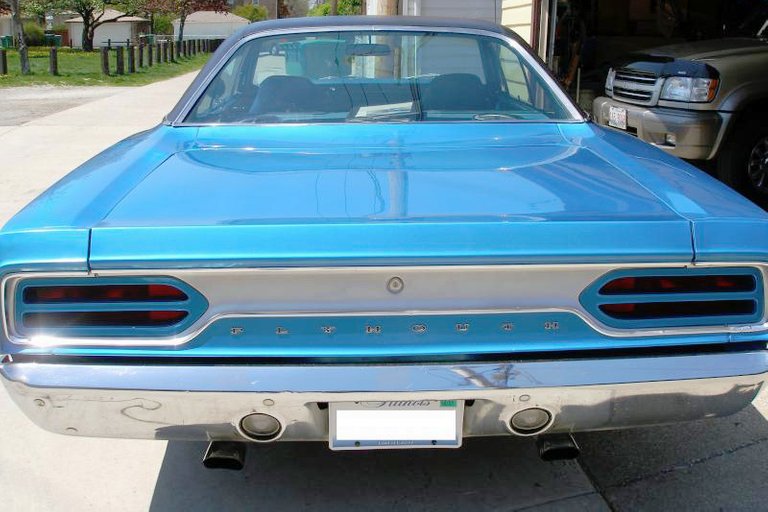
The example below is a Road Runner SuperBird.
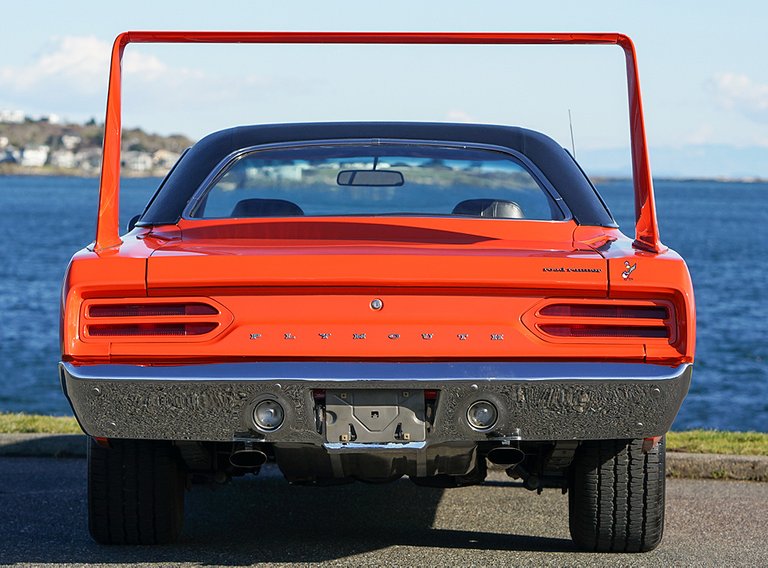
source
Top of the heap is the GTX with black-out panel and extra chrome surround on the trunklid and corners.
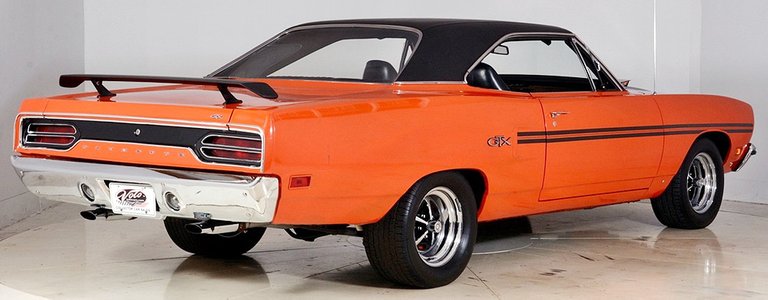
The tailights appear to have just a thin edge of the chrome trim showing with the rest blacked-out like the rear panel itself. You can see easily the second chrome surround that extends all the way across and down the side almost to the bumper. Definitely a unique element to distinguish the GTX.
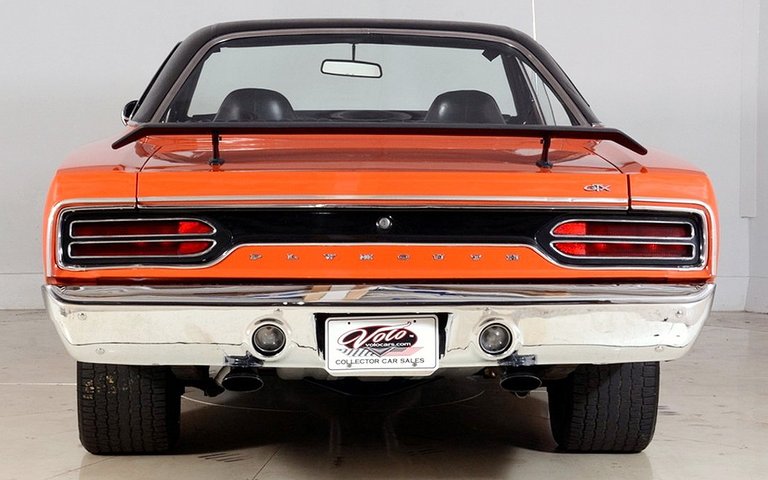
And there you have it for the rear panel styles for 1970 Plymouth Belvedere varieties.

Here we go with the grilles for 1970 Belvederes.
Below is a Satellite featuring the same basic face as Belvedere and Road Runner as in previous years.
source
Note that while the grille of the above Satellite shows standard grey plastic, the example below has the Road Runner blacked-out grille added. Both cars have the driver-convience blinker indicators mounted on the hood instead of the fenders. This might have been the only time that this was every done.
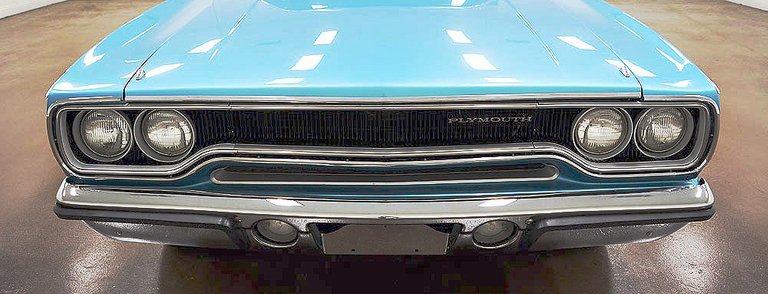
source
Below is the grille of the '70 Road Runner featuring the blacked-out version of the base Belvedere's vertical texture (as in the Satellite above).
Note the simple grid texture within the lower grille opening just above the bumper. On GTX this area is deleted.
Here we have the distinctive grille of the Plymouth Belvedere Sport Satellite featuring a red-white-and-blue horizontal bar within the grille. The grille is a blacked-out honeycomb texture with a silver plastic surround. This is also used on the GTX.
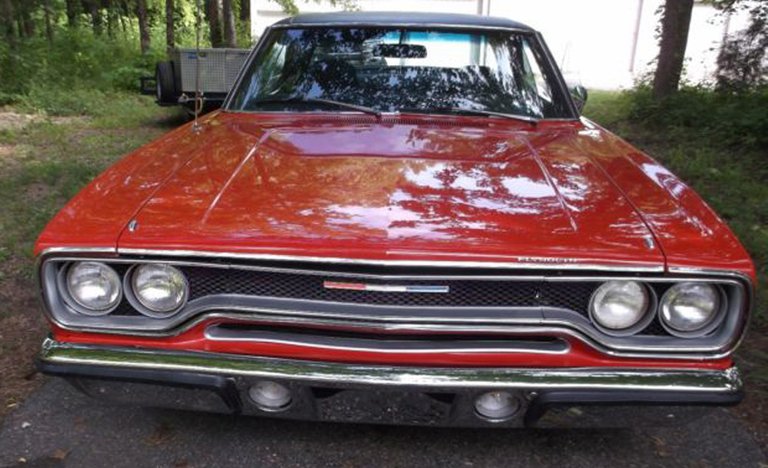
source
The ad says Belvedere, but pictured is a Sport Satellite.. note the red-white-and-blue horizontal bar within the grille.
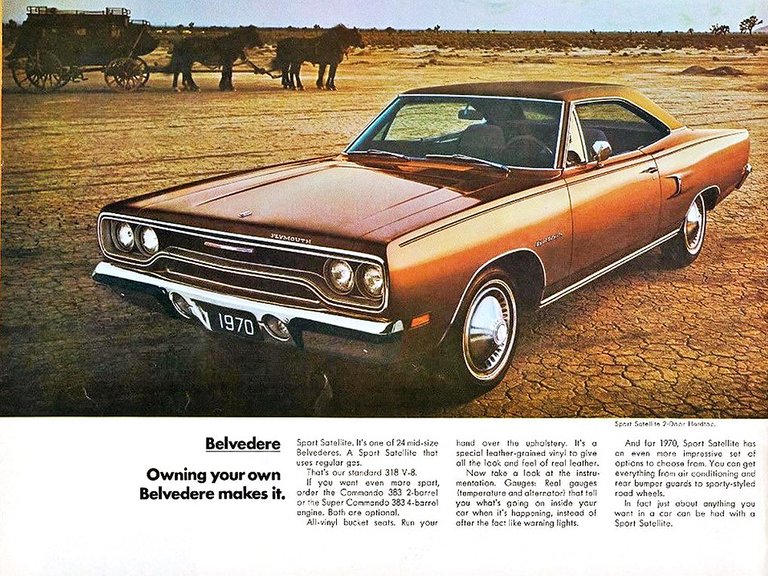
The most premium Belvedere of all remained the GTX for 1970. The grille is a blacked-out honeycomb texture with a silver plastic surround just like Sport Satellite but with a GTX logo centered... see below
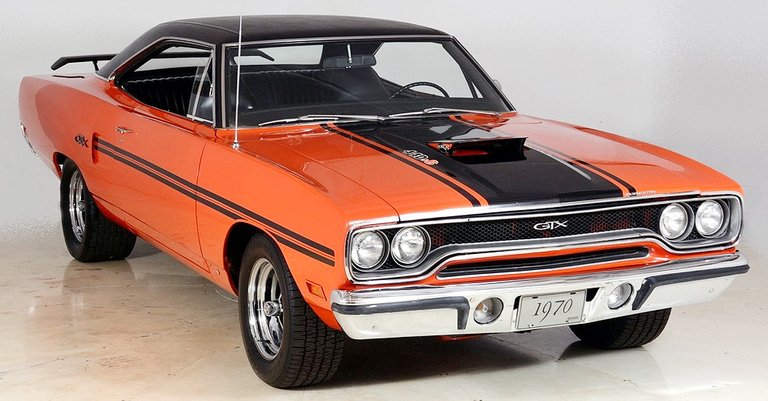
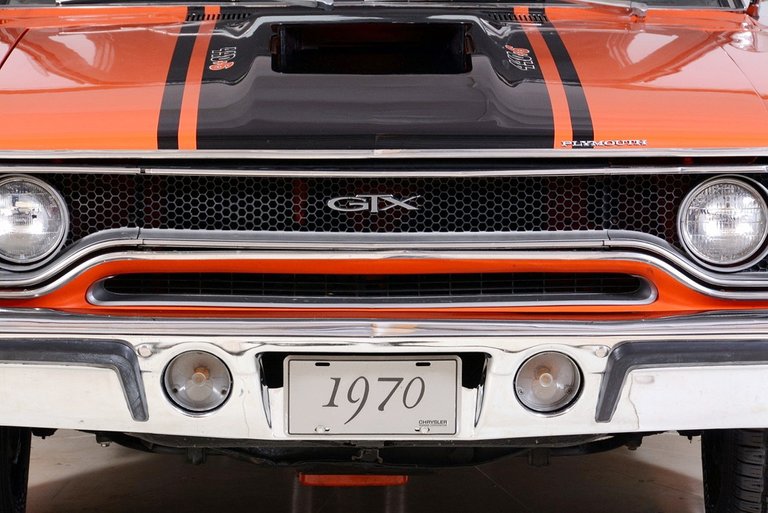
source
Although the GTX ruled the roust up to this point as the high-end muscle car... her position was briefly eclipsed by a rare bird indeed.. the second rear for a winged race car following of course the 1969 Dodge Charger Daytona.
The Ultimate Mopar of All was of course the 1970 Plymouth Superbird.. 426 hemi or 440
The elegant Superbird.. note the steep curviture to the leading edge of each fender matched perfectly with the plastic nose cone. Those fenders are not Belvedere/Satellite fenders. They are actually 1970 Dodge Coronet fenders. You can see in the photos below how square the leading edges of the fenders were for the Belvedere '70. This wouldn't do for the aerodynamic profile required for this winged wonder. The Coronet however had a much more appropriate downward slope so they were improvised into the final product.
Compare the above and below images. It's obvious that the standard Satellite fender is very different than the SuperBird's fender!
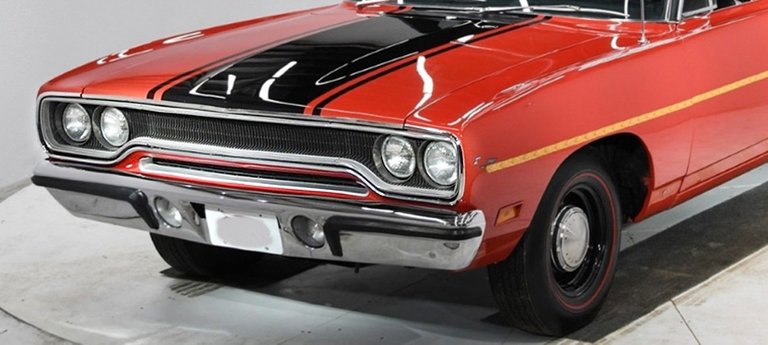
Now look at the wonderful face of the '70 Dodge Coronet. Look at the curvature of the fender's leading edge.
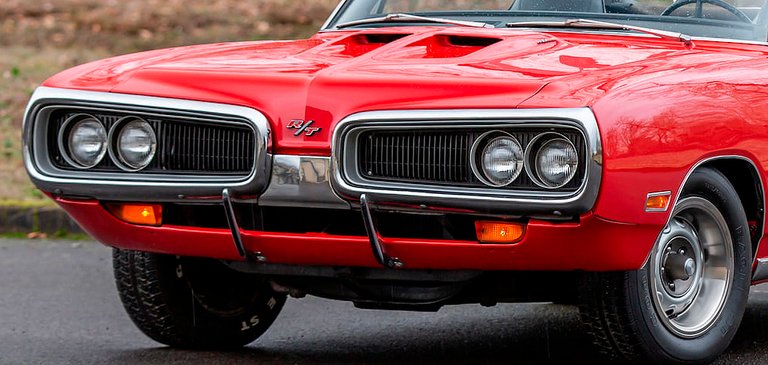
source
... and compare to the SuperBird again..
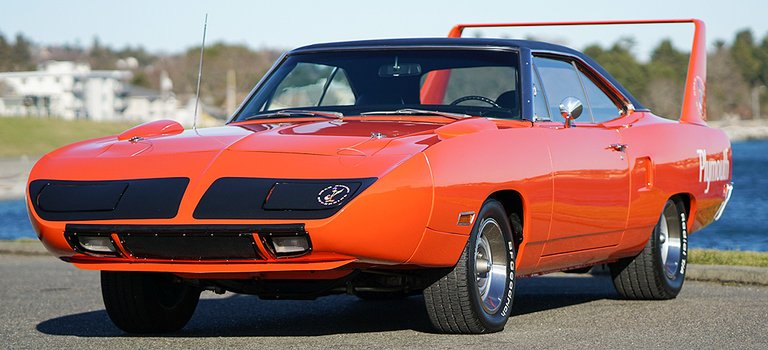


❤ comments / corrections / clarifications welcome! ❤
🌷

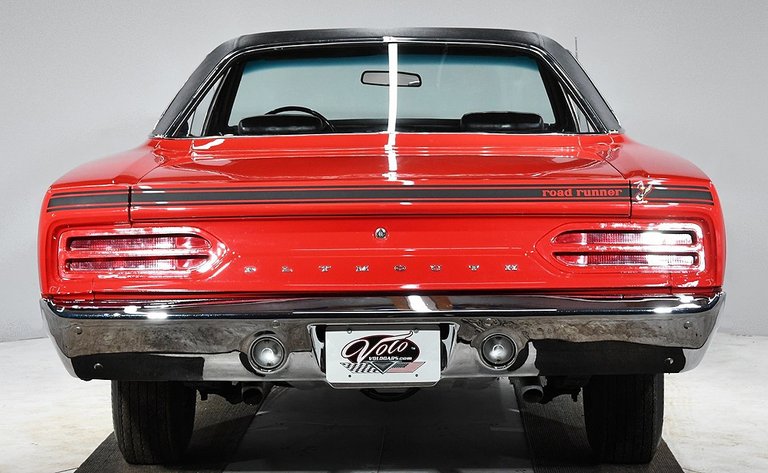
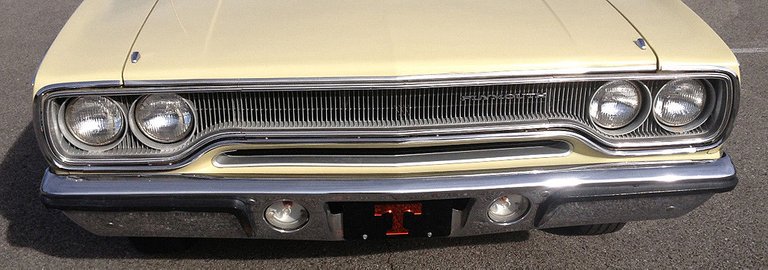
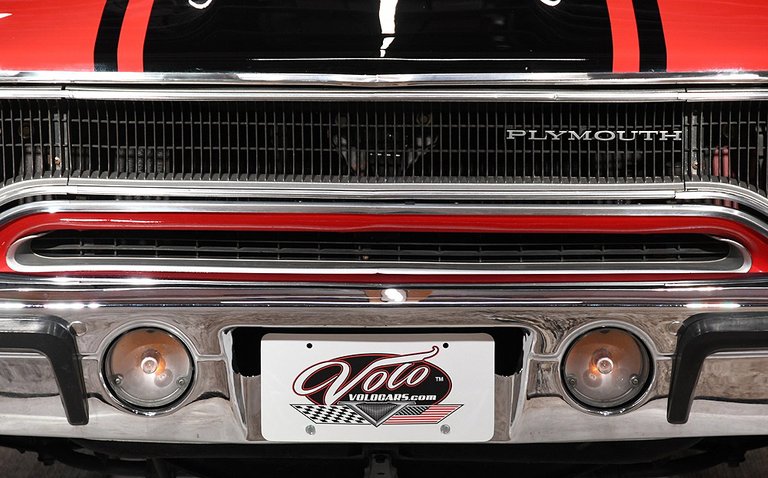
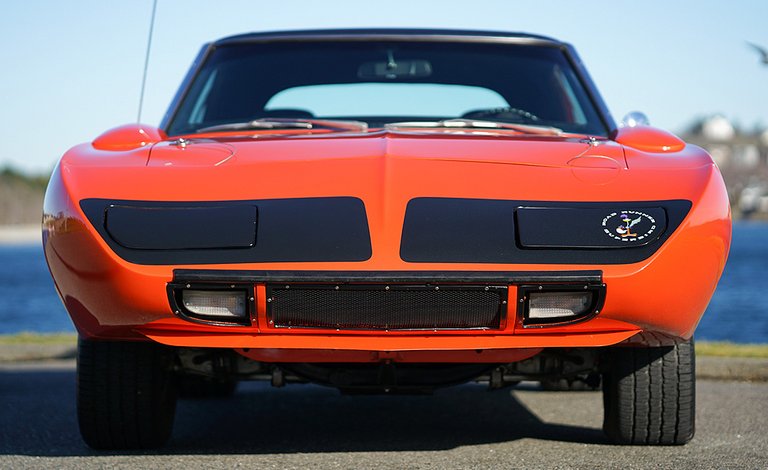
nice presentation.. almost bewildering but not.